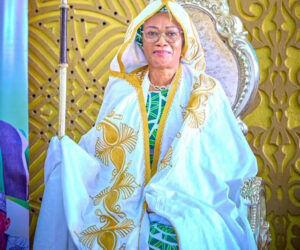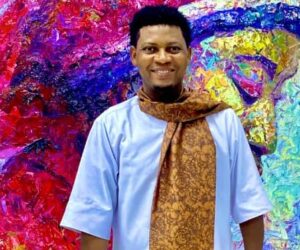1
I don’t intend to delve into certain scriptural interpretations, but I’d like to use the biblical account of King Rehoboam to illustrate my perspective on our present King’s governance system.
This historical narrative, found in 1 Kings 12, offers a compelling analogy for our understanding of the current political climate in Nigeria.
Following King Solomon’s death, his son, Rehoboam, ascended the throne. The twelve tribes of Israel, burdened by heavy taxation and demanding labour imposed by Solomon, saw an opportunity for change. They approached Rehoboam with a plea to lighten their burdens, hoping for a more compassionate reign. Rehoboam, recognizing the gravity of the situation, requested three days to consider their request and consult with his advisors.
He first sought the wisdom of the elders, seasoned advisors who had served his father. They counseled him to heed the people’s pleas, to demonstrate humility and understanding, and to build a strong relationship with his subjects by easing their burdens.
This wise counsel emphasized the long-term benefits of a compassionate approach, suggesting that a conciliatory gesture would foster loyalty and strengthen the kingdom.
However, Rehoboam also consulted with his younger contemporaries, men who had grown up alongside him in the privileged environment of the royal court. These younger advisors, lacking the elders’ experience and foresight, encouraged Rehoboam to assert his authority and increase the people’s burdens. They argued that demonstrating strength and resolve would solidify his position as king and discourage any further challenges to his rule.
This advice, driven by a desire to maintain the status quo and perhaps even expand the royal power, ultimately proved disastrous.
When the three days elapsed and the people gathered to hear Rehoboam’s decision, he chose to follow the counsel of his younger advisors. He responded harshly to the people’s pleas, rejecting the wisdom of the elders and declaring his intention to increase their burdens even further.
As recorded in 1 Kings 12:13-14 (NLT), Rehoboam declared,
“My father laid heavy burdens on you, but I’m going to make them even heavier! My father beat you with whips, but I will beat you with scorpions!” This arrogant and insensitive response ignited the people’s anger and led to the division of the kingdom.
Now, let’s consider a fictional parallel to illuminate the current situation in Nigeria.
First, I want us to reflect about a leader, Yar’dua, who governed with wisdom and compassion, earning the love and respect of his people. Yar’dua reigned with the fear of God, and even the people loved him. He initiated and implemented policies that not only unified the country, but broker peace in many parts of the country with issues of conflicts. A man, who admitted the flaws in the election process that enthroned him, and promised to straighten our electoral laws that will be transparent and acceptable both in Nigeria and elsewhere.
Yar’Adua’s death was a national calamity as he wasn’t able to replace the flaws in our electoral process, and as such, subsequent elections were marred by violence, intimidations and outright killings; and thuggery became a national theatre of war between the leaders and the hunger weaponized citizens, and gradually, things started falling apart with the kidnapping of Chibok girls.
Upon his death, his successor, GEJ, inherited a prosperous, unified and peaceful nation. However, instead of following Yar’Adua’s example, GEJ chose a different path, prioritizing personal gain and rewarding his allies at the expense of the people.
Many Nigerians thought that GEJ, who succeeded him will follow the same path of honour, but instead of following the footsteps of his father (Yar’Adua), decided to open the CBN vault to family members and party faithfuls, and our economy nosedived from surplus to deficit.
God was angry with GEJ but didn’t reject him immediately because of Yar’Adua’s good nature just as He did for King Solomon because of King David.
Suddenly, the people rioted, and in that protest, religious leaders who ought to discern the season, behaved like the Israelites (people) who demanded for their own chosen leader (Saul). God Almighty stepped aside, and GEJ was not only betrayed, he was virtually chased out of Aso Rock.
God was angry with the people and he allowed them to choose PMB, and the spirit of King Jehu rested on him. He reigned tyrannically and the people groaned but God turned his back. PMB assumed leadership, adopting a strict and authoritarian approach. While some appreciated his efforts to combat corruption, his heavy-handed tactics and perceived disregard for the people’s welfare created a new set of challenges. The people groaned under his rule, longing for relief and a return to the prosperity they had enjoyed under Yar’Adua.
When PMB’s reign was over, and the people didn’t repent and ask for forgiveness, rather, still believed in their choice of a leader, PBAT mounted the throne with the worst controversy ever known anywhere in the world. This time, God unleashed the spirit of King Rehoboam upon him.
PBAT ascended the throne as in the time of Rehoboam, inheriting a nation fractured by economic hardship and political turmoil. Faced with the people’s pleas for relief, PBAT sought counsel. Wise elders urged him to prioritize the people’s needs, to address the root causes of their suffering, and to implement policies that would foster economic growth and social harmony.
However, PBAT also consulted with a different group, perhaps those who benefited from the existing system as the Governor of Lagos State or those who prioritized short-term gains over long-term stability. He ultimately chose to follow their advice, implementing policies that further burdened the people and exacerbated their suffering right from his first day in office. This time, the centre did not only imposed heavy burden on the people, poverty and hunger were thoroughly weaponized in an unimaginable dimensions.
The current predicament, much like the situation faced by the Israelites under Rehoboam, highlights the dangers of ignoring wise counsel and prioritizing short-term gains over the longterm well-being of the nation. The pervasive corruption, violence, and disregard for human life have stained the fabric of the Nigerian society. Sadly, there seems to be a lack of genuine remorse and a reluctance to address the root causes of these problems.
This analogy paints a stark and unsettling picture of the current state of affairs in Nigeria. The president’s actions, or rather inaction, represent a profound betrayal of the trust placed in him by the Nigerian people. His apparent indifference to the escalating violence and suffering suggests a hardened heart, a detachment from reality that defies comprehension.
The citizens who continue to defend him, despite the overwhelming evidence of his failures, further compound the tragedy. Their unwavering support, often rooted in partisan loyalty or a refusal to acknowledge the gravity of the situation, enables the perpetuation of this dysfunctional and dangerous status quo. Imagine full grown up adults (Governors) traveling miles away from their States just to wave a president goodbye for shamelessly travelling abroad to enjoy a ten-day vacation when many Nigerians are being murdered every day and insecurity at an alarming level?
It is a collective delusion, a shared denial that prevents the nation from confronting the harsh realities it faces and taking the necessary steps towards healing and recovery.
Nigeria’s persistent challenge lies in the continued selection and empowerment of leaders with questionable backgrounds and demonstrably poor track records. This recurring issue involves entrusting positions of authority to individuals known for criminal activities, proven incompetence in governance, and a tendency towards unserious and often inappropriate behaviour.
It means that both the leaders and the citizens should share the responsibility to seek forgiveness, to prioritize justice and compassion, and to work together to rebuild a more just and equitable society. Just as the kingdom of Israel faced division and decline under Rehoboam’s misguided leadership through hardship and tribal bigotry, so too does the nation of Nigeria face a precarious future if it fails to learn from the past. As we pray for forgiveness and decide to follow the path of honour come 2027 elections cycle, don’t forget that I come in PEACE.
Dr. Sunny Oby Maduka (DSM), is an Author, Resource Personality, Management Consultant/ Trainer, Chartered/Certified – A u d i t o r / A c c o u n t a n t , Financial Compliance Expert, Economic/Political Analyst Strategist, Marine Expert and Motivationist)








